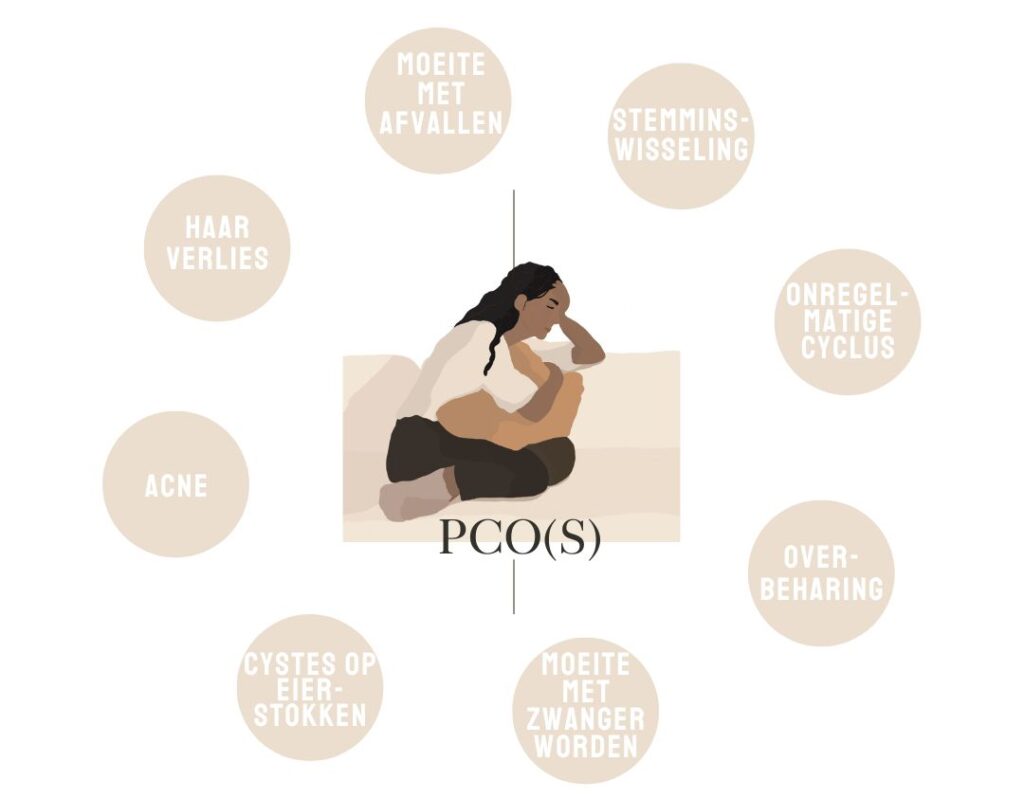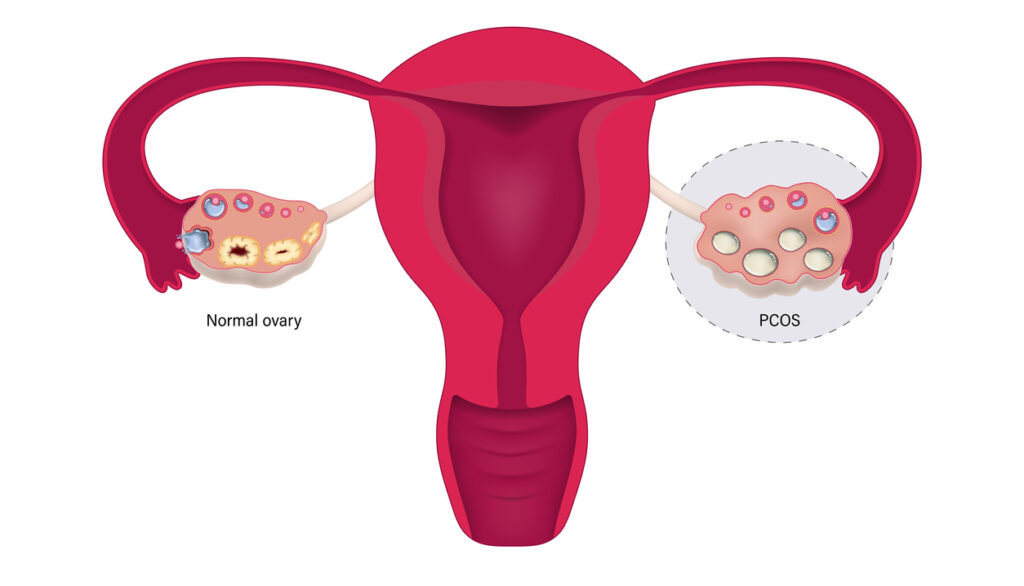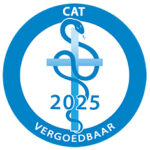Hoop met PCO(S)!
Help, I have more and more strange complaints: Hair growth, acne, irregular periods and more.

PCO(S)
More and more women suffer from PCO(S), but where does it come from? It appears to be genetically determined and may be related to an unhealthy, Western lifestyle.
If lifestyle influences this syndrome, we may be able to gain control over recovery or reduction of complaints.
PCO stands for polycystic ovary (more than 10 cysts/fluid sacs on the ovary) and the S stands for syndrome. If you do not have an irregular cycle, despite cysts on your ovaries, we call it PCO without S.
Cycle
Ideally, a cycle lasts an average of 28 days, with ovulation around day 14. The first day of your cycle is the first day of your period. During this period, the uterine lining is broken down and follicles (egg cell with a covering of fluid and cells) begin to grow, producing the hormone estrogen. The most dominant follicle continues to mature until day 14, after which ovulation occurs. After ovulation, the hormone progesterone is produced.
With PCOS, not one dominant follicle matures, but several grow at the same time, resulting in a lack of or irregular cycle.
Hormones
An irregular cycle due to PCOS causes a hormonal imbalance. Women with PCOS usually have a normal estradiol level but, due to the lack of regular ovulation, they do not produce enough progesteroneUlla Brouwer operates the website https://mijnbedrijven.eu (the “Service”).
PCOS is therefore associated with a lack of progesterone. At the same time it is testosterone level often, not always, too high.
Progesterone is essential for women, because it ensures a good mood, stable sleep, relaxation and it is necessary for pregnancy. A deficiency of progesterone is therefore unpleasant.
Bee estrogen dominance, with short- and long-term consequences, problems such as difficulty losing weight, headaches, painful periods and mood swings can occur.
Testosterone is known as a male hormone, but women have it too. Testosterone, for example, gives decisiveness and libido. An excess of testosterone compared to progesterone can cause symptoms such as; beard growth, acne and the absence of menstruation.
For a free self-test of your hormones, you can click on the self-test via our website: www.hallohormonen.nl
Criteria PCO(S)
To be diagnosed with PCOS, you must have at least 2 of the 3 symptoms below:
- No or irregular cycle of less than 8 times a year.
- Increased testosterone (Sometimes visible through facial hair growth, acne or baldness)
- The ovaries have vesicles/cysts (can be checked via internal ultrasound).

Culprits for PCOS are excessive stress, high insulin levels (sugar & carbohydrates), lack of exercise and a deficiency of progesterone.
Ignorance can cause you to unconsciously live with stress for (too) long a time and not get enough nutrients. Implementing new habits takes time and discipline.
A first step you can take is to reduce your meals to a maximum of 3 times a day. This is crucial for stable blood sugar levels and insulin levels and therefore supportive of PCOS.
We are happy to help you on your way to a life free of PCOS complaints.
For more tips, we refer you to 'Healthy Habit' on our website.
Or choose one hormoontraject to measure your hormones and work on recovery with a personal step-by-step plan.






